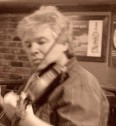There is a subtle distancing effect which our numerous online devices and other technologies foist upon our minds regarding the world of everyday objects. Left unchecked, we develop a disregard and disinterest in things and their nature, reflected in the disposable stance many ‘movers and shakers’ adopt towards articles of utility. But imagine if the surrounding world of objects could be reunited with their rightful depths of significance, qualities, and history! Suppose you had to think ONLY about a piece of chalk, to take a mundane example, for 10 full minutes. How difficult would it be, and what could be recovered?
Tag / cognition
Beyond Mindfulness
Do This Before Waking
There is a country with exceedingly fuzzy borders we all traverse and meander about each night between definitely awake and definitely not awake. Dream state consciousness researchers call this fluctuating interim the hypnogogic condition. But there is also hypogogia: the transition phase between not yet awake and awake every morning. An equally evasive experience, but easier to empirically study on one’s own, I find. Whoever explores this persistently can more easily catch pictures of how altered consciousness looks, because the mental energy is increasing and refreshed in the mornings as opposed to night times. It is a matter of building technique…
Time is a Braid
Life is concealed by the conceived constructs of past and future… yet evolving and karmic necessity are both reality.
Sitrep
A galactic consciousness scout revisits a favorite world to update his observations after the passage of 33 years…
A-i-t-S 3B : Across The Lake
This is the final episode to be posted in my series describing personal experiences venturing beyond the veil of the obvious. It takes place in a wilderness setting in the autumn, in the northern part of Alabama. Look here if you want to gain an overview and rationale about the entire “Adventures in the Supernatural” series.
“People sacrifice the present for the future. But life is available only in the present. That is why we should walk in such a way that every step can bring us to the here and the now. Many people are alive but do not touch the miracle of being alive.” – Thich Nhat Than
CONDENSED VERSION: Lovers of brevity might feel relieved that years ago I expressed all of this in a haiku instead. 🙂
ACTUAL VERSION: Continue Reading.
Detecting Angelic Footprints
Erotic love is like a possession, an intensification of self. It leaves one fevered. But parental love is something altogether miraculous. It is a remedy, a self-dissolving. A spreading out into the cosmos… an echo of what it must be like to be a sun.













